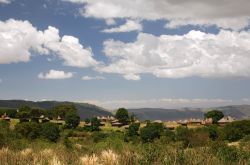In past posts, I’ve written (or re-published) about how countries like Brazil are taking a leadership role in global biofuels development. I came across an article recently in the Business Daily that discusses how Brazilian biofuels experts are working with Kenya to boost their biofuels development.
 While there are still global concerns about biofuels relationship to food, especially food security, Kenya is moving forward with its increased production of sugarcane for ethanol. Brazilian experts are helping the country improve sugarcane production as well as aiding them in the development of ethanol production facilities strategically located throughout the country.
While there are still global concerns about biofuels relationship to food, especially food security, Kenya is moving forward with its increased production of sugarcane for ethanol. Brazilian experts are helping the country improve sugarcane production as well as aiding them in the development of ethanol production facilities strategically located throughout the country.
Back in July, a pact was signed between the two countries that ensures cooperation in the development and promotion of both ethanol and biodiesel. The pact includes the exchange of expertise and training support.
“These joint consultations and efforts will enable Kenya to tap our 85 years of experience and expertise to discover her potential in biofuel production,” a Brazilian foreign affairs ministry official, Mr Luciano Sousa, said in Nairobi after a meeting with Kenyan experts last week.
Today, more than 100 countries have some energy policy that requires the development and use of bioenergy, and according to Brazilian biofuel expert Daniel Machado da Fonseca, Brazil’s biofuels model can be replicated in these countries.
“One of the highlights of this pact is to assist countries map out the biofuel zones to ensure that its commercial production does not pose a threat to food security,” said Machado.
Kenya is not the only country that Brazil has signed a pact with. They are also working with Tanzania, Uganda, Ethiopia, the Sudan, and Mozambique to help them develop their biofuels programs.

